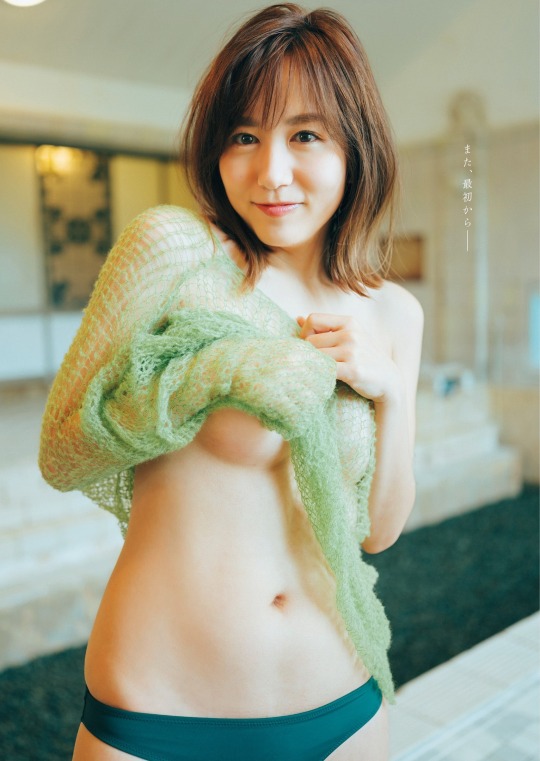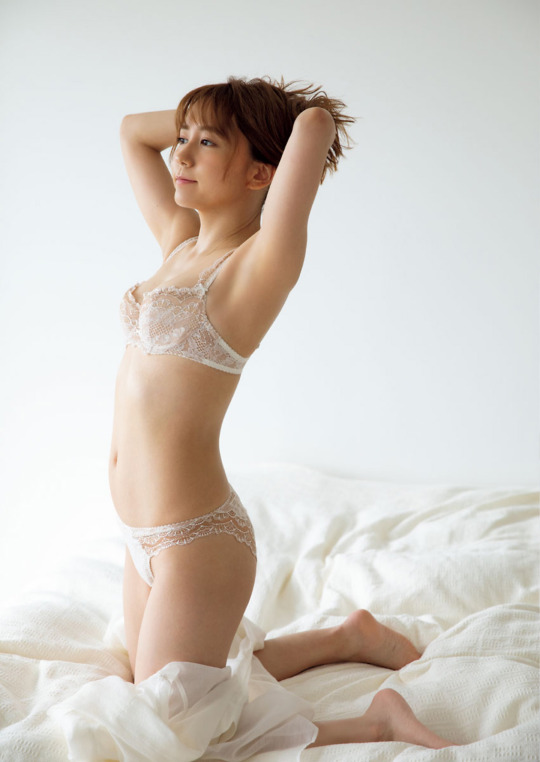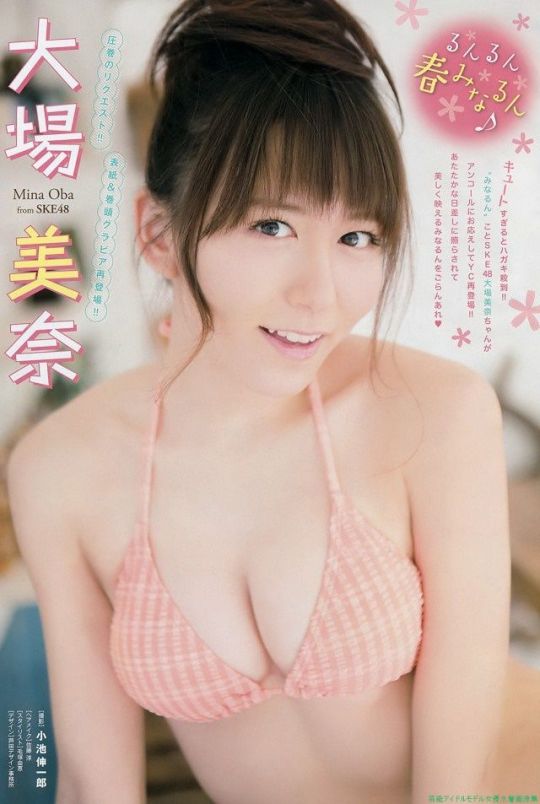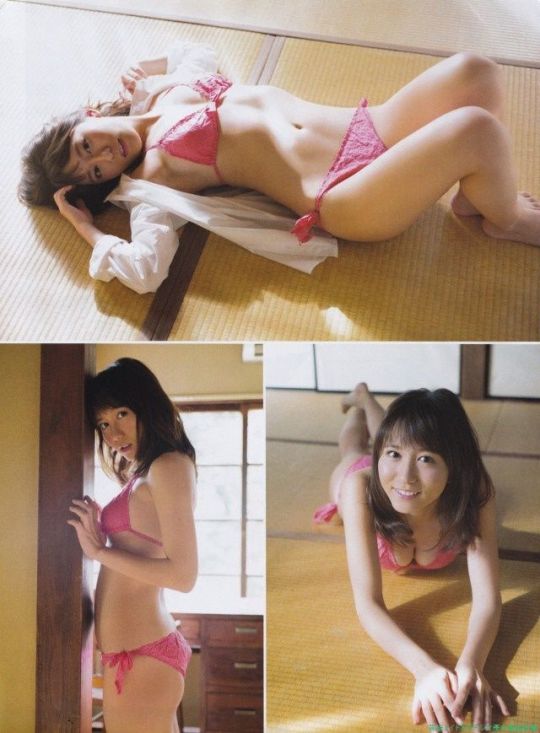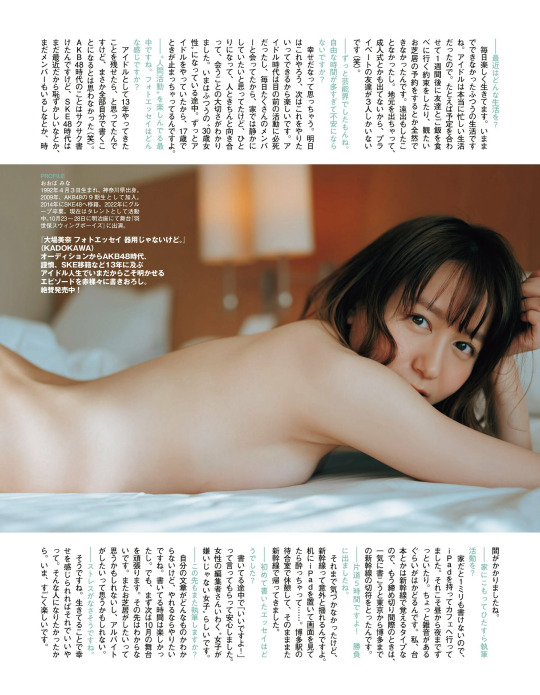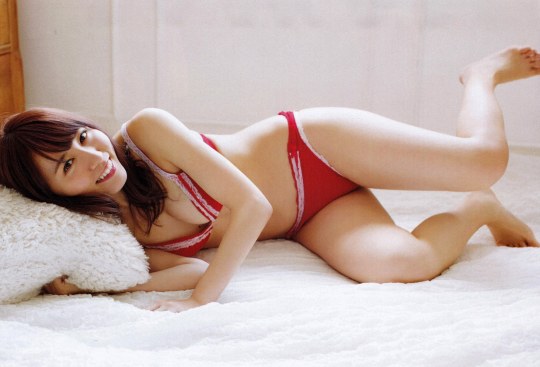#Oba Mina
Photo


「週刊プレイボーイ 2022年11/21号」 大場美奈
https://www.amazon.co.jp/dp/B0BKLSVZY2/
25 notes
·
View notes
Text
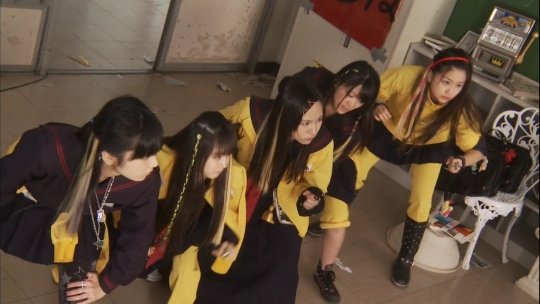


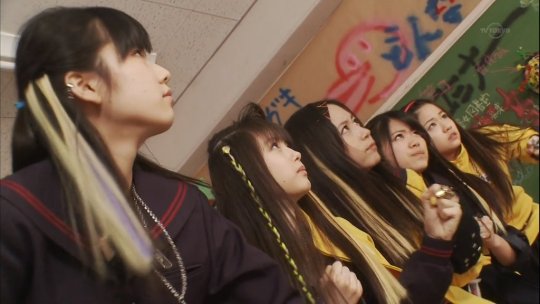
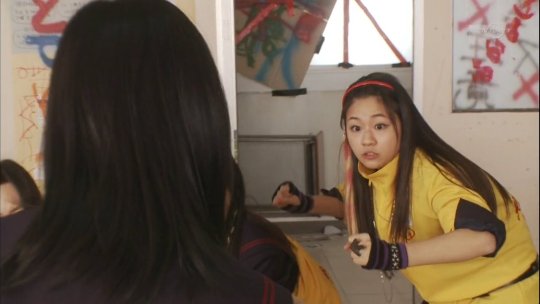

Ok guys, ready to eat Center out in our delicious fondue...? Mmm....
3,2,1....... TAKE HER !!!!!!!!!!!
#shimada haruka#ichikawa miori#yamauchi suzuran#oba mina#shimazaki haruka#team fondue#majisuka gakuen2
3 notes
·
View notes
Photo


#oba mina#ske48#idol#actress#minarun#hell girl#movie#jigoku shoujo#Sanae Mikuriya#mikuriya sanae#singer
5 notes
·
View notes
Text

nanimo soko made ep 1
1 note
·
View note
Photo
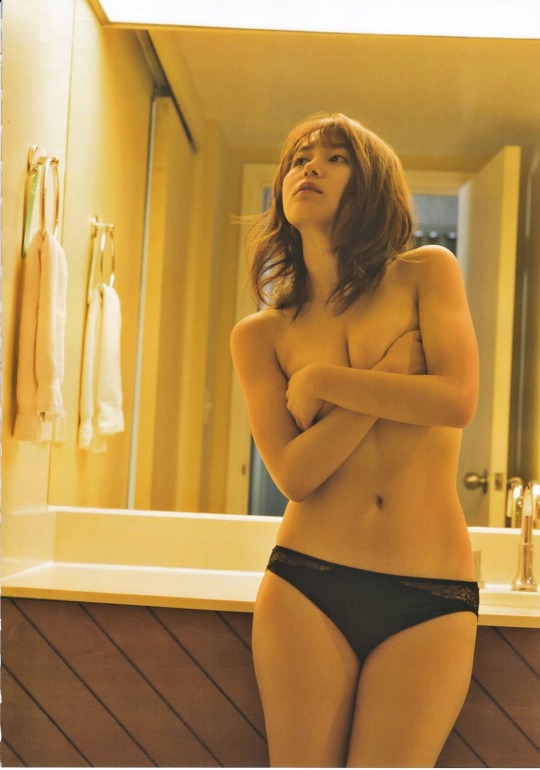


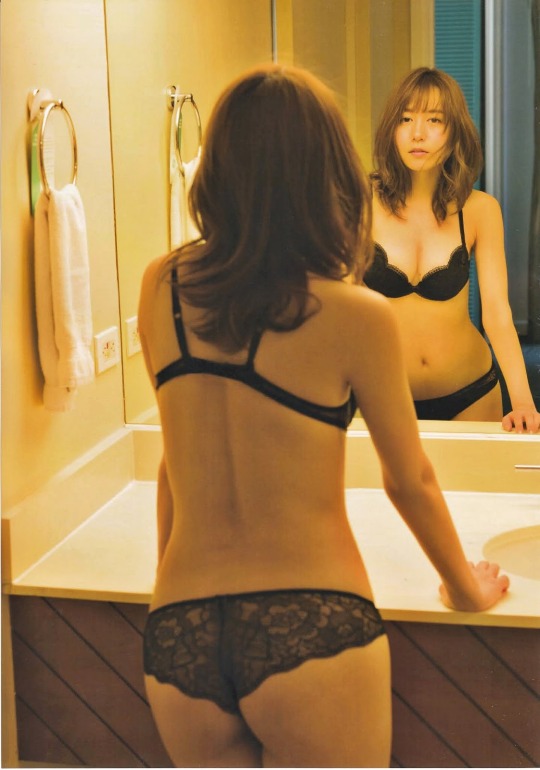
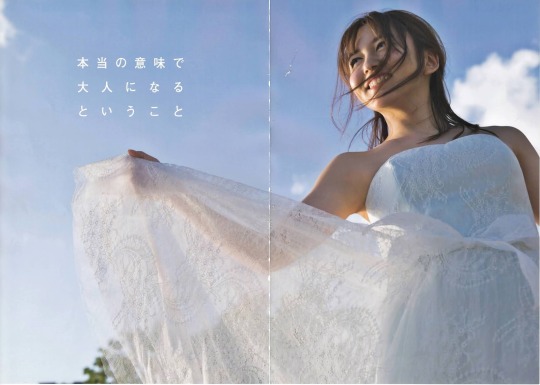
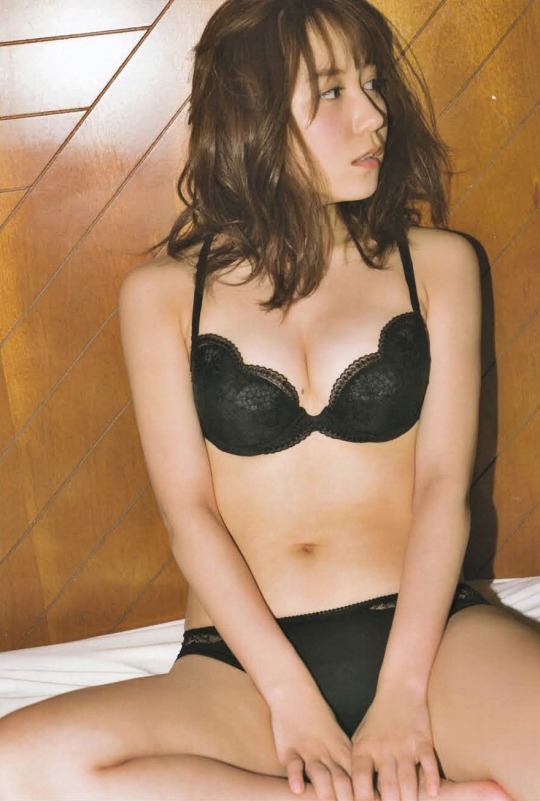



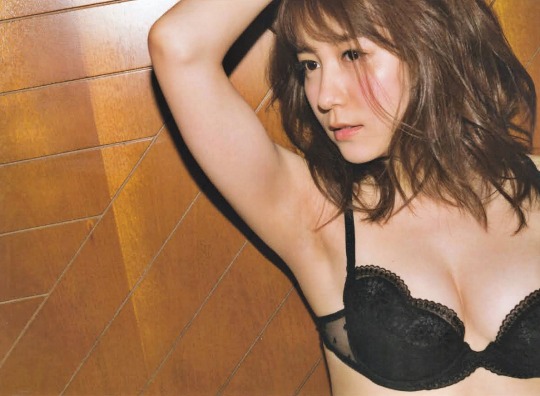
the true meaning of becoming an adult 2019.08.02 - 11
63 notes
·
View notes
Text

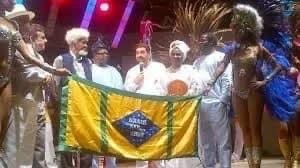
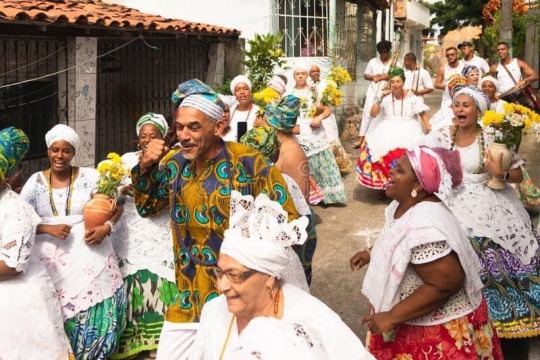
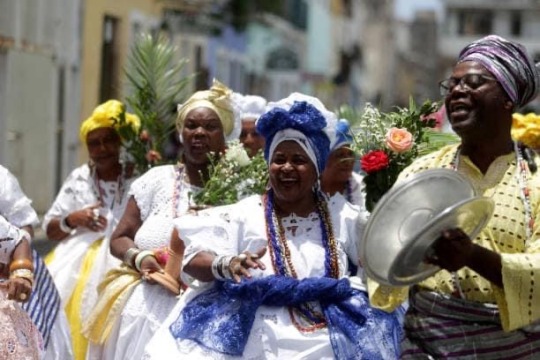

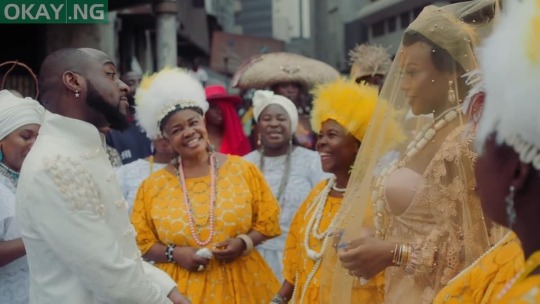

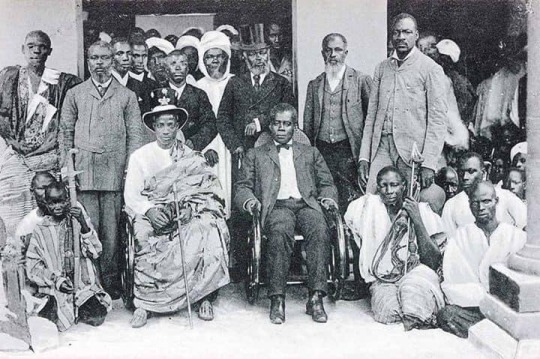
AFRO BRAZILIANS OF NIGERIA
🇳🇬🇧🇷🇳🇬🇧🇷🇳🇬🇧🇷🇳🇬🇧🇷
Brazilians in Nigeria, Amaros or Agudas consist of the descendants of freed Afro-Brazilian slaves who left Brazil and settled in Nigeria. The term Brazilians in Nigeria can also otherwise refer to first generation expatriates from Brazil.
🇧🇷🇳🇬
Starting from the 1830s, many emancipated Africans who had been through forced labour and discrimination in Brazil began moving back to Africa, noteably Nigeria, with the largest number, being in Lagos, while other regions with significant populations were
Lagos, Abeokuta, Ibadan, Warri, Calabar, and Port Harcourt, bringing along with them some cultural and social sensibilities adapted from their sojourn in Brazil. These emancipated Africans were often called "Aguda" or "Amaro", and also included returnees from Cuba. As of today there are less than 200 Brazilian citizens registered within the consulate in Nigeria.
🇳🇬🇧🇷
At the height of the Transatlantic slave trade in West Africa, many prisoners of war or those kidnapped for sale in slave markets were sold to Europeans and transported across the Atlantic. Estimates of the number of slaves from the Gulf of Guinea to Brazil totaled about 300,000 in the nineteenth century. The captives disembarked in Bahia before moving further south to work on plantations, assist tradesmen or hawk goods for white Brazilians. As some gained manumission, earned savings or got deported as a result of racism, waves of African migration back to the West African coast developed. By the middle of the nineteenth century, an Afro-Brazilian community had begun to emerge along the West African coast, developed by descendants of slaves who had twice crossed the Atlantic. These Africans brought back Afro-Brazilian sensibilities in food, agriculture, architecture and religion.
🇧🇷🇳🇬
The first recorded repatriation of African people from Brazil to what is now Nigeria was a government-led deportation in 1835 in the aftermath of a Yoruba and Hausa rebellion in the city of Salvador known as the Malê Revolt. After the rebellion, the Brazilian government - fearful of further insurrection - allowed freed or manumitted Africans the option to return home or keep paying an exorbitant tax to the government. A few Africans who were free and had saved some money were able to return to Africa as a result of the tough conditions, taxation, racism and homesickness. In 1851, 60 Mina Africans put together $4,000 to charter a ship for Badagry.
After slavery was abolished in Cuba and Brazil in 1886 and 1888 respectively, further migration to Lagos continued. Many of the returnees chose to return to Nigeria for cultural, missionary and economic reasons. Many of them descended from the Yoruba. In Lagos, they were given the watery terrains of Popo Aguda as their settlement. By the 1880s, they comprised about 9% of the population of Lagos. Towards the end of 1920, the migration stopped.
🇳🇬🇧🇷
Though coastal Lagos was the preferred destination, most of the returnees were descendants of groups such as Ijeshas, Oyos, Ijebu and Egba based in the interior. The Agudas were aware of their home cities but preferred to set up shop in Lagos because it was conducive for trade, they were warmly received in Badagry and also because of on-going wars in the interior. A ship with Agudas docking in Badagry would be welcomed by crowds of children hailing them as they disembarked from the ship, whereas in the hinterlands strangers were viewed with suspicion. In some cases, the Oba of Lagos gave them land to build a house and provided men to assist them in their transition to local life. This notwithstanding, Lagos was different from Bahia. The elder returnees were comfortable, but many of the children were foreign to Lagos. They held on to elements of Bahia culture such as Catholicism and formed a close knit community within Lagos Island. Because of the retention of Catholicism and Western dressing, indigenous Africans called them "black whites" or Agudas. Keen on acquiring wealth in Africa, some of the earliest Agudas were morally ambivalent on issues such as slavery and became slave traders themselves, such as the descendants of Francisco Felix de Sousa and Domingo Martinez.
Returnees from Brazil and their present-day descendants were and are more commonly called "Agudas" (from agudão, a non-standard Portuguese word for cotton properly rendered as algodão or "Amaro". Most were Catholics, but some worshiped African Orishas which they brought from Brazil. Some of the Agudas are also Muslims. Most of them still have Portuguese names. Some common Portuguese family names in Nigeria include Pinheiro, Da Silveira, De Silva, De Souza, and Moreira. In the 1800s, the major distinguishing set of classification was by birth, Agudas taken captive from West Africa who emigrated back to Lagos were called Papae or Mamae and those who were born in Brazil and then returned were called Yaya or Yayo.
The Brazilians began to cultivate relationships with the traditional authorities in Lagos, while some renewed relationships with Africans in the hinterland by supplying them with weapons. Agudas supplied weapons to the Ijeshas in the war against Ibadan. Beginning in the 1880s, many began to change their names to African ones while the Aurora relief Society was formed to research their culture. The Brazilian's also bought their architectural style of houses, which are still evident in Lagos Island Yaba, Abeokuta, Warri, Port Harcourt and Calabar
Notable Brazilian Nigerians include:
DJ Caise, DJ Xclusive
Adetokunbo Ademola
Adeyemo Alakija
Aduke Alakija
Kojo Annan
Elizabeth Abimbola Awoliyi
Mobolaji Bank Anthony
Bankole Cardoso
Candido Da Rocha
Moses Da Rocha
T.A. Doherty
Bernadine Evaristo
Abimbola Fernandez
Antonio Deinde Fernandez
J.M. Johnson
Jibril Martin
Orlando Martins
Femi Pedro
Joke Silva.
🇧🇷🇳🇬🇧🇷🇳🇬🇧🇷🇳🇬🇧🇷🇳🇬
10 notes
·
View notes
Text
Literatura independente é destaque da Casa Baderna

Literatura independente é destaque da Casa Baderna pra FLIP 2023
Literatura independente é destaque da Casa Baderna. Editora estará localizada no centro histórico de Paraty, com uma programação inteiramente voltada à literatura marginal e periférica
São Paulo, 22 de novembro de 2023 - Um ano depois de estrear na FLIP (Festa Literária Internacional de Paraty), a editora Baderna volta ao evento com uma programação completa de saraus, slams, oficinas, mesas, lançamentos e dezenas de outras atividades protagonizadas por autores com uma produção de extrema relevância para literatura contemporânea, porém pouco badalados pelo mercado editorial. Diferente da primeira participação que contou apenas com duas tendas, uma kombi e uma caixa de som, na edição deste ano a editora terá seu espaço próprio no Centro Histórico da cidade, de 22 a 26 de novembro em Paraty, Rio de Janeiro.
Uma das novidades da Casa Baderna para esse ano, será o lançamento da tradução do livro Unspoken, lançado no Brasil como Mulheres Reis, fruto da pesquisa da Rainha Ronke Ademiluyi-Ogunwusi, da Nigéria, sobre as OBA OBINRIN – mulheres iorubanas que governaram como reis em séculos passados.
"O livro celebra as mulheres monarcas da Nigéria e apresenta como foram suas jornadas para chegar a Reis e suas formas de governar, nas palavras da Rainha Ronke, uma obra pra inspirar e encorajar mais mulheres a tomarem papéis de liderança na sociedade" explica Eliana de Freitas, sócia da Baderna e responsável pela coordenação dessa publicação.
O lançamento acontecerá na noite de sábado, no palco dos autores, localizado no areal do pontal, com a presença das poeta Mel Duarte e King Abraba, atual campeã do Slam SP (etapa estadual do circuito de batalhas de poesia falada), que também estará lançando seu livro novo, Abraba, pela Baderna, a obra mistura poesias inéditas com alguns de seus textos mais emblemáticos que se tornaram clássicos pelas rodas de slam do país. "Ao mesmo tempo que dialoga com a história de várias outras mulheres negras, o livro é uma autobiografia poética, traz memórias e vivências de diversos períodos da vida da autora", ressalta Carolina Peixoto, sócia da Baderna e editora da obra.
Outro grande destaque da programação, marcado para a sexta-feira, será a mesa literária "Vida Palestina sob estado de apartheid", realizada em parceria com a editora Periferias, que contará com a presença da jornalista Zukiswa Wanner (Zâmbia), e da rapper Maj (palestino-brasileira), que fará um pocketshow no encerramento da atividade.
A cena dos Slams terá grande destaque na Casa Baderna. Além de "Abraba", o line-up terá as batalhas do Slam do 13 e Slam das Minas-SP, e lançamentos de nomes importantes do movimento, como Matriarcak, Laura Conceição, Naiá Curumim e Santos Drummond. Compõem, também, a programação da Casa autores e obras ligadas à Câmara Periférica de Livros e da editora Periferias, ambos parceiros e apoiadores da Baderna, ao lado da agência MGiora.
Veja a seguir a programação completa:
Quarta-feira – dia 22
21h – Sarau Baderna com Lançamento da obra "De Passagem mas não a passeio", da poeta Dinha
Quinta-feira – dia 23
11h – Intervenção Oráculo de Anderson Moraes
14h – Lançamento: Democracia e Direitos Humanos no mundo do trabalho
15h – Lançamentos: Escrevivendo experiências anti racistas nas escolas públicas OWÉ: Suleando identidades Germinando ações e saberes nas escolas públicas periféricas
16h – Mesa: Narrativas e Mulheridades na literatura contemporânea, com Jéssica Balbino e Poliana Hérica (Abertura: Aflordescendente canta Carolina Maria de Jesus)
18h - Raízes Literárias: Histórias vividas e escritas, com Eliana de Freitas, Lizandra Magon e Dinha - Mediação Katy Navarro
20h – Lançamento: Poesia Viva, de Matriarcak, Laura Conceição e Naiá Curumim
Encerramento: Pocketshow de Laura Conceição
Sexta-feira – dia 24
11h – Brincadeiras poéticas com Carolina Peixoto.
11h30 – Lançamento: A vingança dos sete mares, de Luis Lomenha.
14h – BATE- PAPO: Cenários e consciência: vivências amazônicas na literatura contra o racismo ambiental, com Preto Michel e Câmara Periférica do Livro.
15h – Lançamento: Migrações no Sul-Sul publicações: revista Periferias | Justiça e direitos nas migrações Sul-Sul Reafirmando direitos para as populações haitianas no Brasil com: Heloisa Melino, Richemond Dacilien e Mediação Daniel Martins
16h – A vida Palestina sob estado de apartheid com Zukiswa Wanner (Zâmbia), Maj (palestino-brasileira) mediação Nasser Sawan (Sírio Palestino), Pocketshow: MAJ
18h – O segredo da poética nas palavras não escritas, com Midria, Ibu Helena e Gênesis Mediação Pam Araujo.
19h Lançamento ABRABA King, mediação Apêagá
20h – Performance AfroDubVersivo, com Nelson Maca com participação de Jeff Rodrigues
21h - Slam do 13 Lançamento Santos Drummond
Sábado – dia 25
11h – Literatura na infância - Bruna Burkert, Luis Lomenha e Carol Peixoto
14h – Poéticas visuais negras e palavras inspiradoras, com Mel Duarte e Manuela Navas Mediação Mariane Del Rei
15h Lançamento livro Rio por inteiro Henrique Silveira
16h Slam na américa latina e territórios alcançados com a palavra (Baderna)
Abertura Intervenção King
Conversa com Mel duarte, Paulx Gialdroni e Mercuria
18h –Mesa Literária: Pagu - Legado literário feminino e os reflexos contemporâneos, com Taty Leite, Luna Vitrolira, Pam Araujo (Abertura intervenção com Luiza Romão)
19h – Lançamento coletânea editora Philos
19h – Roda de Conversa publicação de Mulheres Reis, com Mel Duarte e Eliana de Freiras, no Auditório da Praça Areal
20h –Slam das Minas SP
Domingo – dia 26
11h Bate-papo com Bruna Burkert e Oficina infantil: Garrafas Sensoriais
Baderna no palco Ocupa Paratii
Sexta - 16h - Primeiro Ato Salm
Sábado - 16h Slam do verso
Sábado – 18h As minas do Slam Editora Periferias
Serviço
Festa Literária Internacional de Paraty, RJ
de 22 a 26 de novembro, 2023
Casa Baderna
Rua Marechal Santos Dias, 27 Centro Histórico - Paraty-RJ
Read the full article
0 notes
Text
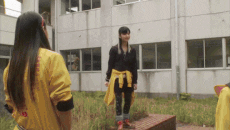
Getting carried away a bit... Liar liar !
#shimada haruka#shimazaki haruka#oba mina#ichikawa miori#yamauchi suzuran#team fondue#majisuka gakuen2
1 note
·
View note
Photo

#oba mina#ske48#idol#actress#minarun#hell girl#movie#jigoku shoujo#Sanae Mikuriya#mikuriya sanae#singer
2 notes
·
View notes



